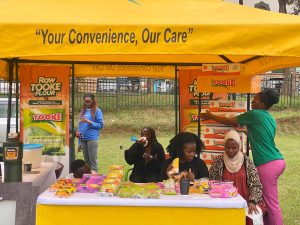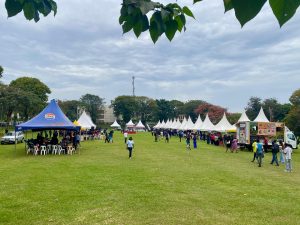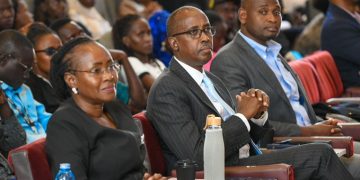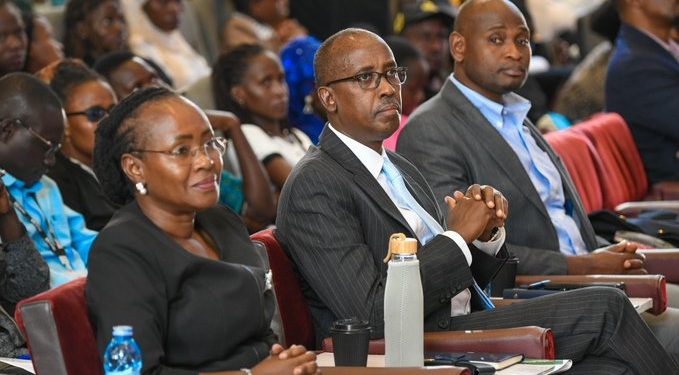Odrek Rwabwogo, Chairperson of the Presidential Advisory Committee on Exports and Industrial Development (PACEID), has encouraged students to embrace entrepreneurship as a pathway to solving Uganda’s pressing socio-economic challenges.
He was speaking on Thursday as the Chief Guest at the Uganda Entrepreneurship Congress and Youth Expo 2025, hosted by Makerere University’s College of Business and Management Sciences (CoBAMS) under the theme, “Brewing Prosperity: Youth Entrepreneurship in Uganda’s Coffee Value Chain.”
The two-day event, held at the Yusuf Lule Auditorium and Freedom Square, attracted over 600 young innovators from Makerere University, who showcased more than 300 entrepreneurial ideas and products poised to drive national transformation.
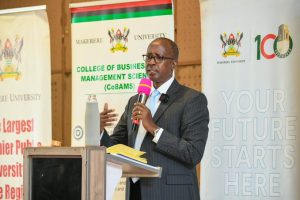
“Life is not always found in books or at university. Education can come from strange places. Everyone has gifts, talents, abilities, and resources to utilise. In a country with many unmet needs, entrepreneurship is about what you change,” he said.
Rwabwogo reflected on the importance of leadership in uncertain environments, noting that effective leaders must surface uncomfortable realities and adapt to them. “Leadership, to me, is much deeper than a position. It is the ability to fix things in an uncertain environment. You may not know if you’ll be here tomorrow, but you take the risk to act—and that effort is noble and commendable,” he added.
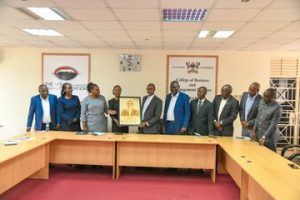
He urged students to share their organisational structures and follow-through plans with government institutions, stressing the importance of practical impact. “Don’t worry about people criticising your papers. If you produce ten papers and two are useful, that’s success. Even if you fail seventeen times and succeed on the eighteenth, that’s progress. The key is to align your work with the needs of the country,” he said.
Rwabwogo also highlighted the value of local innovation. “Not everything can be commercialised, especially in a country that imports 90% of what it consumes. Identify needs that outsiders will never cater for—our language, culture, food, and local nuances. Those are our unique strengths,” he said, citing traditional trades like pottery and carpentry as areas ripe for modernisation and entrepreneurship.
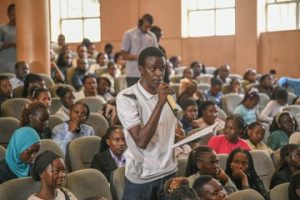
He proposed a follow-up engagement between Makerere’s entrepreneurship team and his office to ensure that government support aligns with the centre’s initiatives, particularly those that create jobs for young people.
Hub for Innovation
Makerere University’s Deputy Vice Chancellor for Academic Affairs, Prof Sarah Ssali, emphasised the university’s dual role as both Uganda’s premier institution of higher learning and a hub of innovation.
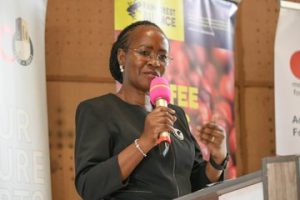
“This year’s expo comes at a time when entrepreneurship is crucial. We continue to champion practical learning and innovations by turning graduates from job-seekers into job-creators. This is in line with our strategic plan,” Prof Ssali said.
Prof Ssali reiterated the importance of evidence-based outcomes and the role of entrepreneurship in youth empowerment, noting that Makerere produces over 10,000 graduates each year, but skill gaps leave many unemployable. “The centre helps reduce idleness, channel energy into productive ventures, and cultivate a culture of innovation.”
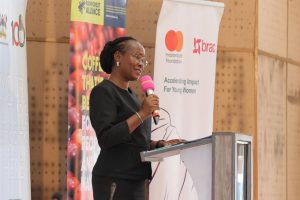
She also stressed the importance of a tracer study and regular engagement between students and industry leaders, suggesting that the centre organise monthly mentorship sessions to strengthen connections between leadership and young innovators.
“In the past, students were often told they were a waste of taxpayers’ money, but today entrepreneurship, creativity, and innovation are recognised as crucial.”
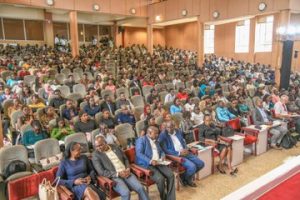
Linking Academia to the Business Industry
Dr Sarah Bimbona, Director of Makerere University’s Entrepreneurship and Outreach Centre, shared the centre’s journey of linking academia to industry, noting the challenge of translating theoretical knowledge into practical impact.
“We have never been in the same room before,” Dr Bimbona said, reflecting on how the centre first reached out to Rwabwogo via Twitter. “Some people are difficult to reach through the usual channels, but this gentleman is always active on Twitter. I decided to send him a message and see if we could connect. I am so glad that it has come to this point.”
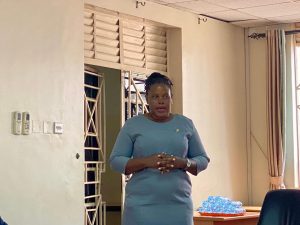
She outlined three primary requests for support: firstly, Support for the Centre, noting that the Centre has spent nine years nurturing over 1,000 business ideas annually, yet the impact of these ideas remains difficult to measure due to a lack of resources for tracer studies.
“Now that you (Rwabwogo) have accepted to become our patron, help amplify the centre’s reach and support youth, women, and broader economic development,” she noted.
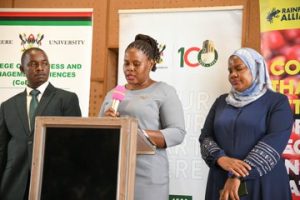
Secondly, Opening Opportunities: The centre offers guidance to entrepreneurs free of charge and seeks partnerships to connect students’ ideas with the industry. “We have the expertise and experience. We just need that extra push to remain relevant in the business community,” she said.
Thirdly, Patronage and Mentorship: Dr Bimbona emphasised the transformative power of mentorship.
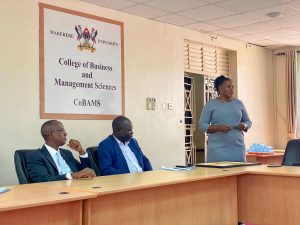
“Seeing our learners succeed is incredibly rewarding. When a student comes back and says, ‘You helped me turn this concept into a business,’ it validates all the effort we put in. Imagine if we could provide sustained support to help them grow over the next three years—mentorship, guidance, and even employment opportunities.”
She added that the centre aims to ensure that research and policy papers are not confined to shelves but have a tangible impact on the industry. “Without industry linkage, our work often remains theoretical. There is so much the university can offer, but access and visibility are major hurdles,” she said.
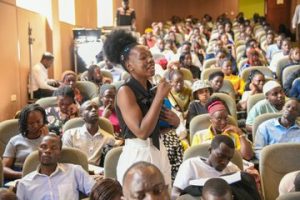
On the second day, the Youth Expo 2025 showcased innovations across multiple sectors, with a special focus on the coffee value chain. Participants presented products ranging from agricultural processing tools to digital platforms designed to streamline the coffee production and distribution process.
